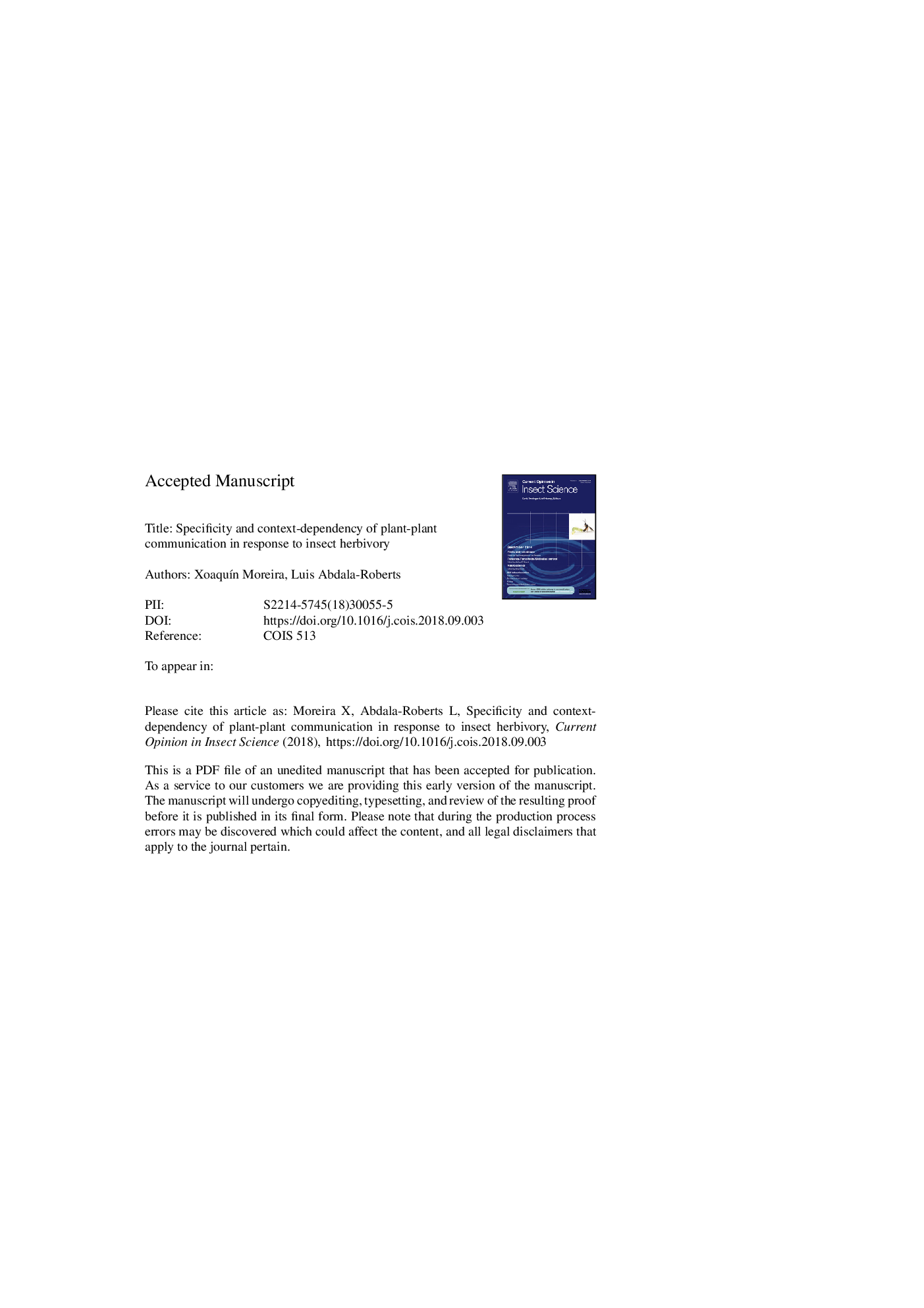| Article ID | Journal | Published Year | Pages | File Type |
|---|---|---|---|---|
| 10223750 | Current Opinion in Insect Science | 2019 | 19 Pages |
Abstract
Over three decades of work on airborne plant communication have taught us that plants send, receive, and respond to volatile organic compounds (VOCs) emitted by conspecific as well as heterospecific neighbouring plants. Much of this research has focused on the consequences of plant-plant communication on resistance against herbivory, with studies showing that VOCs emitted by herbivore-damaged plants increase resistance of neighbouring undamaged plants. However, a key aspect that has received less attention concerns the ecological specificity and context-dependency of this phenomenon. Knowledge on this is crucial for assessing the ecological mechanisms that govern plant communication, determining its biological significance under natural conditions, as well as designing effective strategies for its application (e.g. in crop protection). Here we synthesize important advances from incipient work on the ecological specificity of plant communication according to three main aspects: plant-based specificity, herbivore-based specificity, and the influence of the abiotic context. We then provide some ideas for future research to improve our understanding of the specificity of plant communication and its ecological and evolutionary importance.
Related Topics
Life Sciences
Agricultural and Biological Sciences
Agronomy and Crop Science
Authors
XoaquÃn Moreira, Luis Abdala-Roberts,
